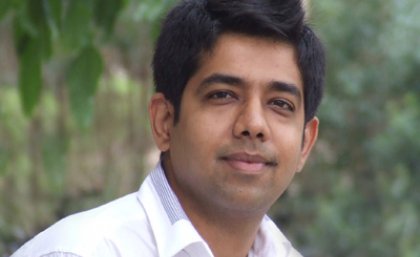
Science and research are not just for doctors and professors in white lab coats, if Amir Popat has his way.
The University of Queensland's Australian Institute for Bioengineering and Nanotechnology (AIBN) researcher is keen to make science accessible to all people, starting with high school students in regional Queensland.
Dr Popat will visit schools next year as part of an outreach program from the Australian Nanotechnology Network, with a school in Morayfield already lined up.
As a Young Nanoscience Ambassador, he will talk about science as a rewarding career and present simple experiments to show the relevance of research in everyday lives.
“There are not a lot of schools outside the metropolitan area that have the opportunity to engage with scientists and be in touch with cutting-edge technology, especially nanotechnology,” Dr Popat said.
“I want to promote science and higher education to students. It is important for the students to know that they can become researchers and come to AIBN.
“Students may not think of research as an employment area, but it is satisfying work – and it helps society.
“The technology we are developing is not pie in the sky. There are things already in everyday use, such as tennis rackets with carbon nanotubes and better cancer medicines with nanoparticles. That is nanotechnology.”
Dr Popat said scientists did not visit his high school and he did not consider a career in research while still a teenager.
When completing undergraduate studies, he saw the possibilities of nanotechnology at a conference and decided to pursue a Master in Pharmaceutical Nanotechnology and a PhD in Nanomedicine.
Dr Popat is now working in Professor Chengzhong (Michael) Yu’s research group to develop intelligent nanocarriers, which can deliver medicines specifically to cancer cells.
As part of his vision to share the benefits of science and technology, he will teach undergraduate students at the Pharmacy Australia Centre of Excellence (PACE) at The University of Queensland (UQ) from next year.
This will be a joint appointment between AIBN and PACE, which will go beyond teaching to include a research collaboration.
Dr Popat has also taken an active part in AIBN student outreach activities, providing guidance to students on placement in labs for up to a week and demonstrating his research as part of building tours.
The Young Nanoscience Ambassador program has funding from the Federal Department of Industry, Innovation, Science, Research and Tertiary Education.
Media: Erik de Wit (0427 281 466, 3346 3962 or e.dewit@uq.edu.au)
.jpg)


